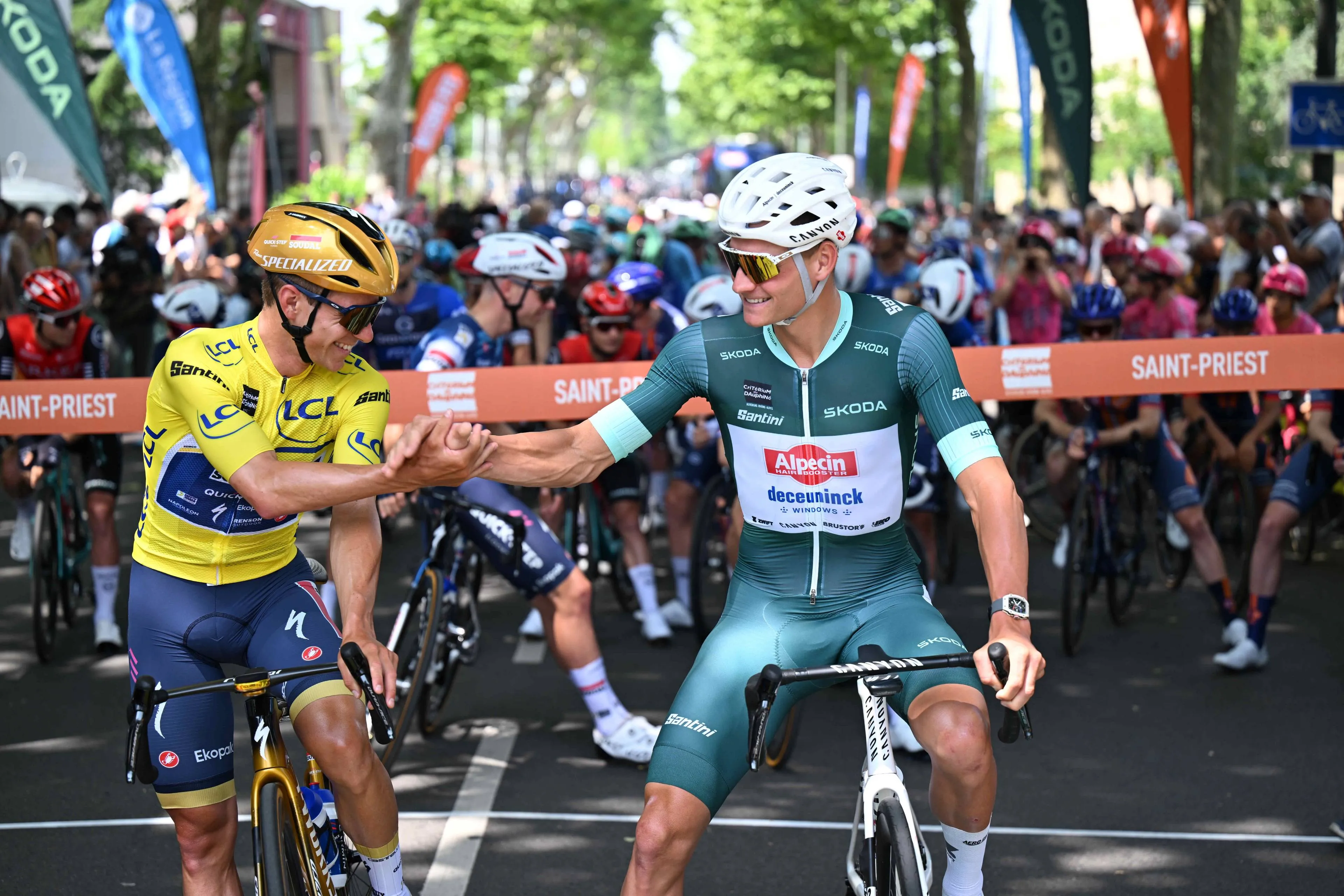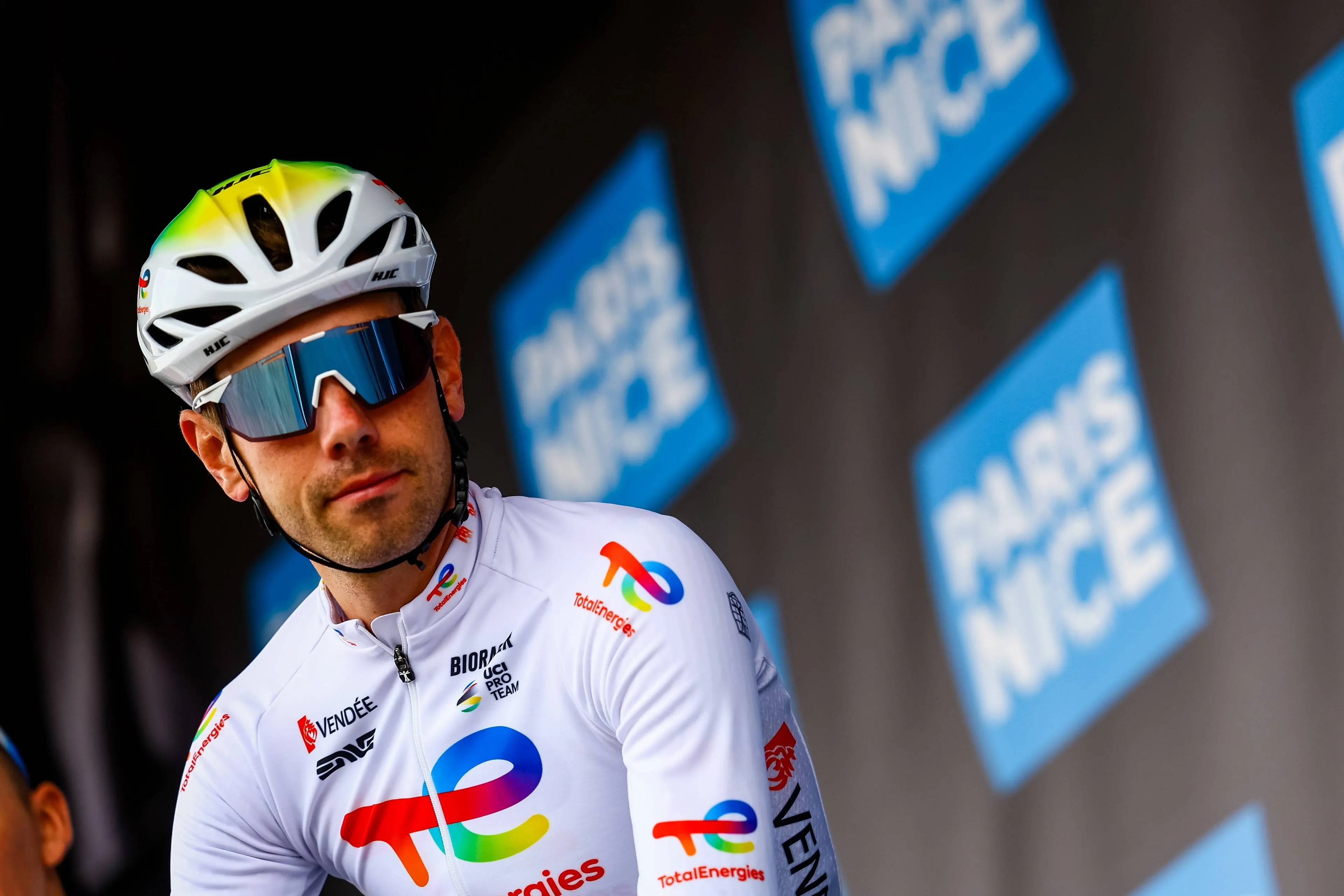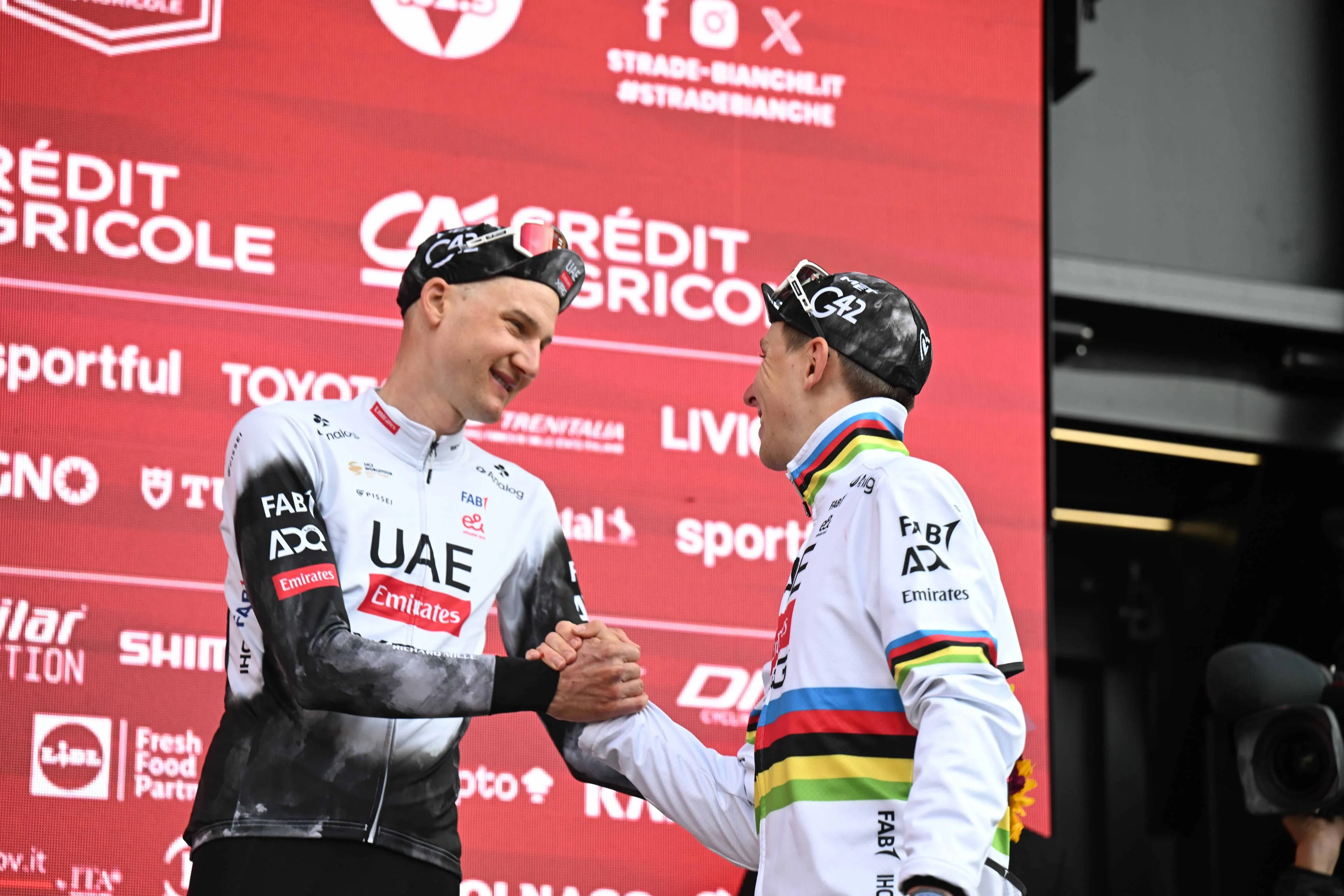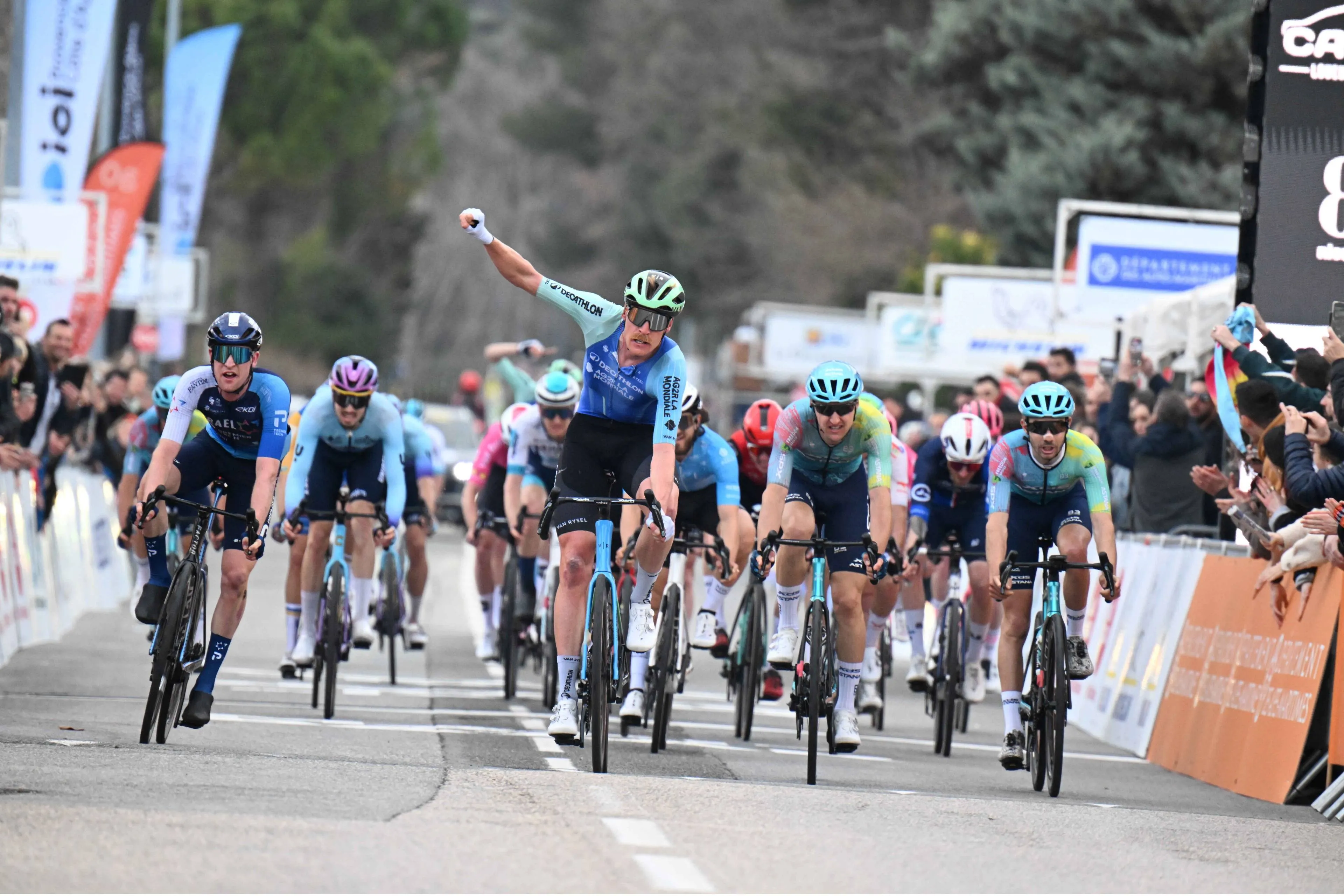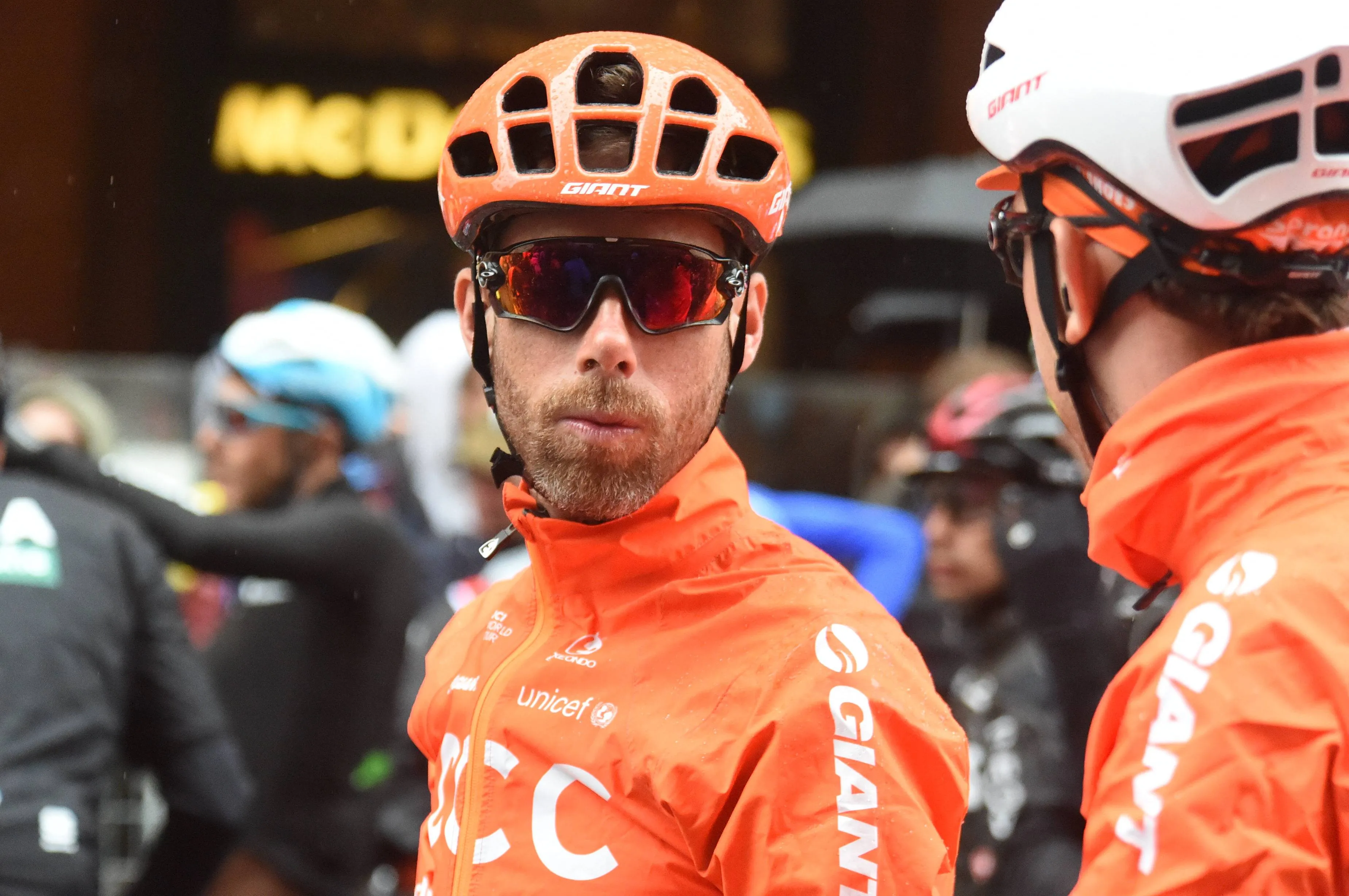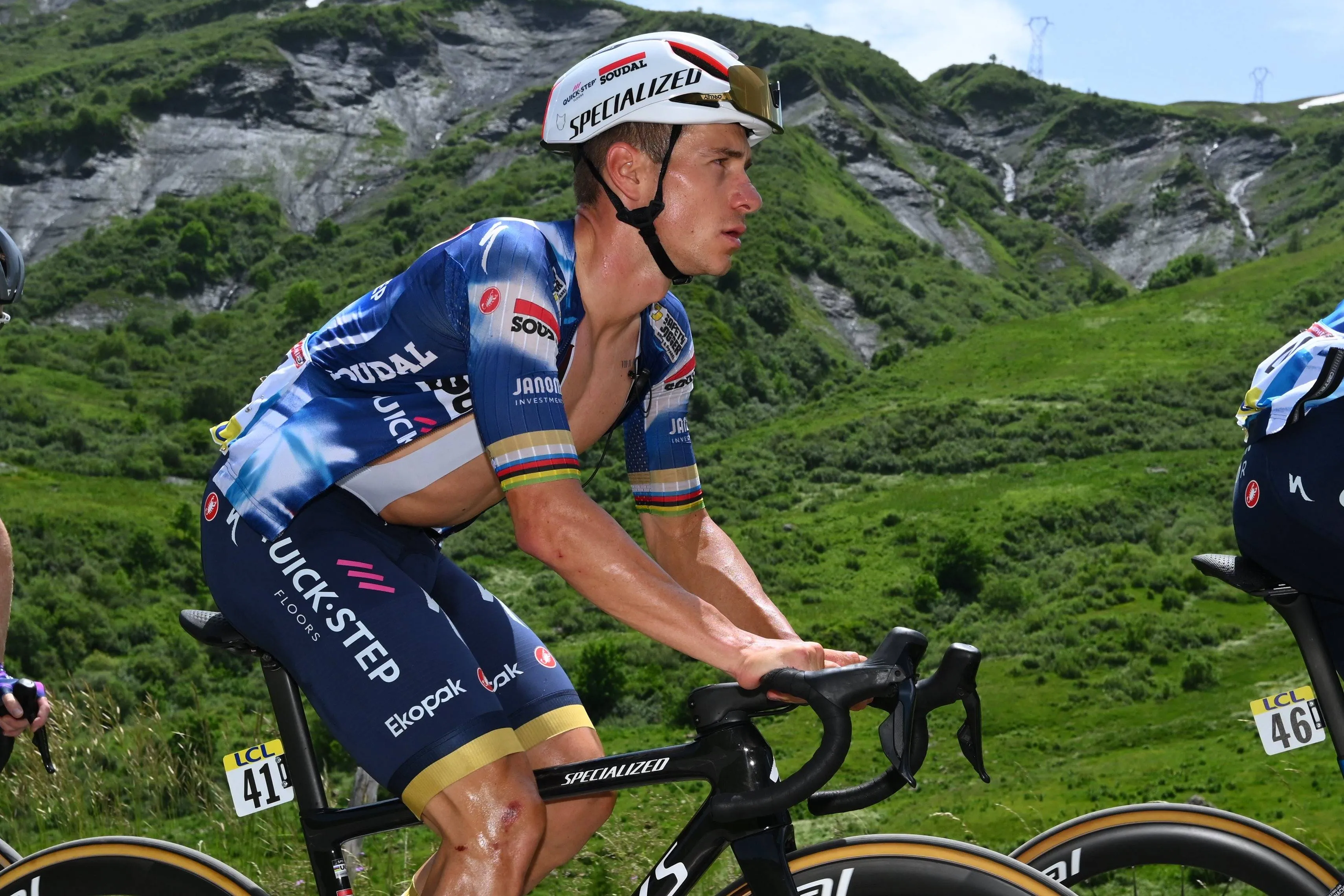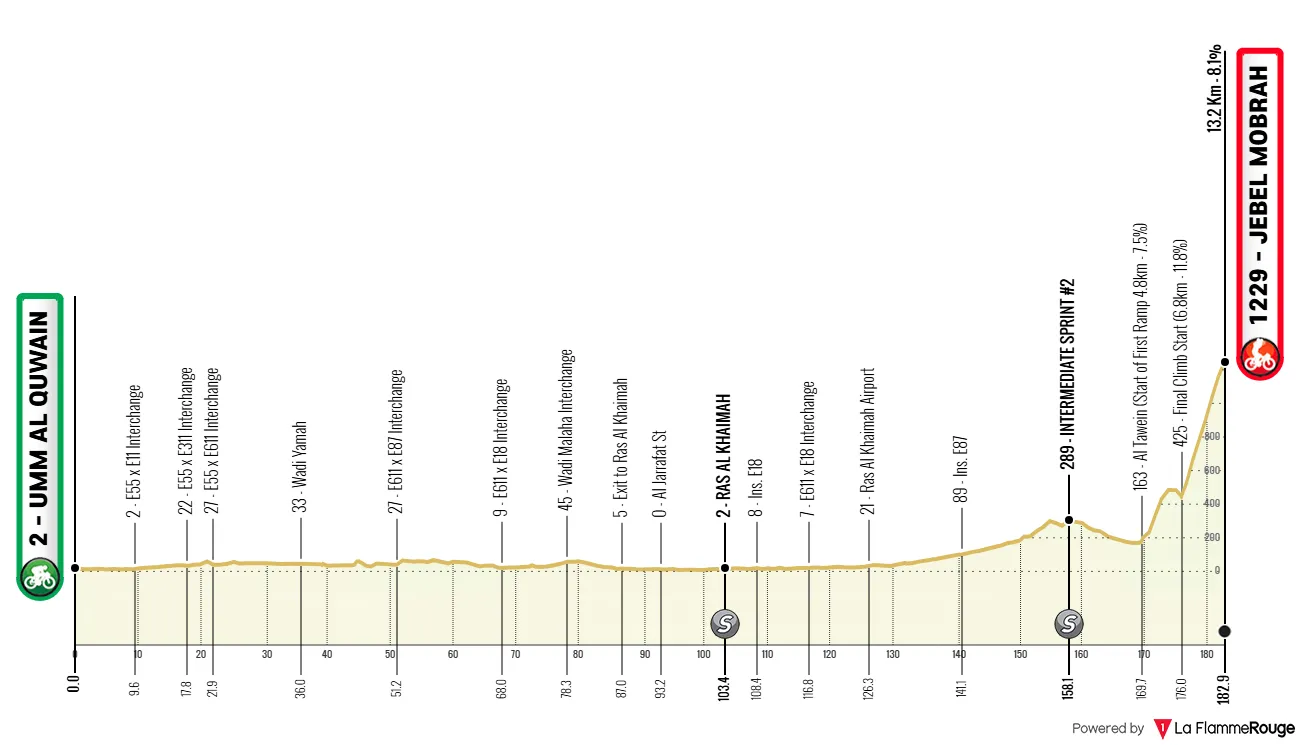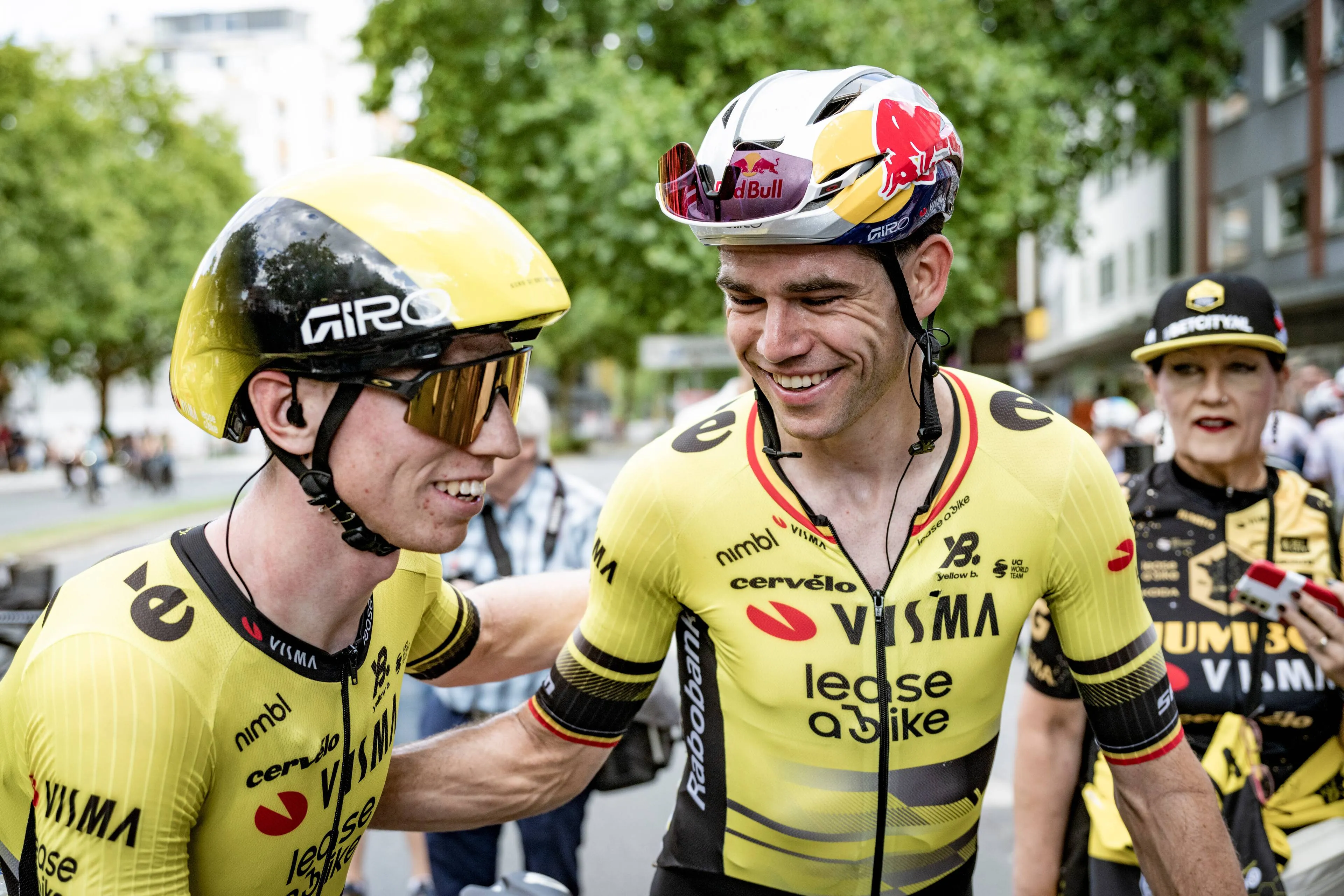Countdown to the Tour de France: 5 days | Mark Cavendish breaks Eddy Merckx’s record
CyclingMonday, 30 June 2025 at 21:30
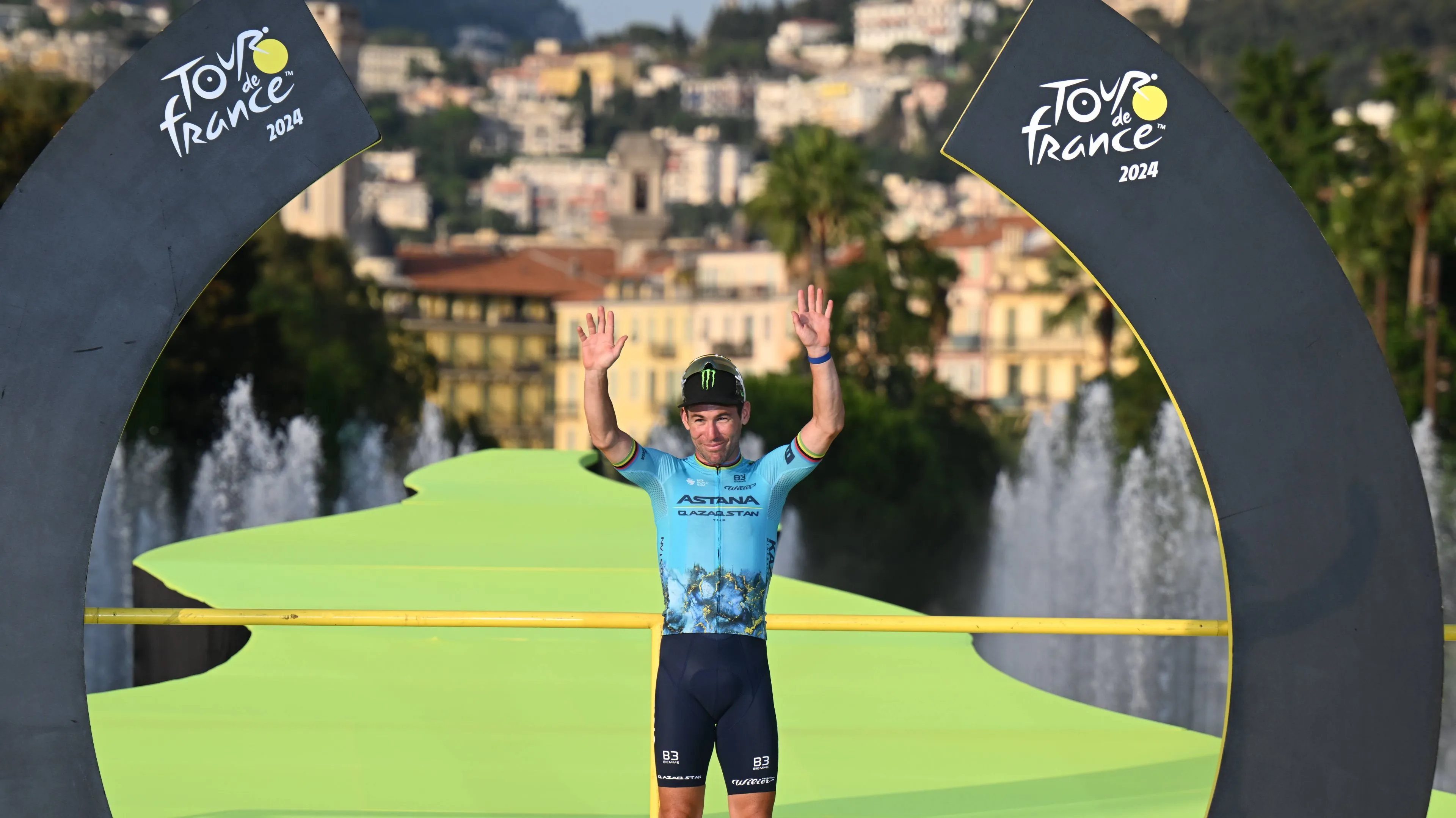
In today’s Tour de France countdown article, we celebrate
one of the most popular victories in recent editions of the Tour de France. Of
course, we are talking about Mark Cavendish’s historic stage victory at the
2024 Tour de France, a triumph that crowned him the most prolific stage winner
in the race’s history, surpassing the great Eddy Merckx.
For Cavendish, this was more than just another win; it was
the crowning achievement of a remarkable career defined by not only his
incredible speed, but also his ability to comeback time and time again, despite
many set backs.
So, let’s dive into stage 5 of last year’s Tour de France,
and find out why it had been a moment so long in the making.
Read also
2024 Tour de France Stage 5
It was on Stage 5 of the 2024 Tour de France that Cavendish finally
had the moment, he and his fans, had dreamt of for so long. In the unassuming
town of Saint-Vulbas, far from the pomp of Paris, the 39-year-old sprint legend
wrote a new chapter of Tour history in what was expected to be his final
appearance at cycling’s biggest race.
Cavendish unleashed a vintage sprint in the final 100
meters, timing his acceleration perfectly to blow past his rivals. He crossed
the line ahead of Jasper Philipsen, with Alexander Kristoff in third, then
roared in celebration as the enormity of his achievement sank in. Many of his
rivals, who he had just beaten once again, quickly came over to him to
congratulate him on a truly legendary moment.
Read also
It may not have been the Champs-Élysées, but the moment was
massive, Cavendish’s 35th Tour de France stage win, breaking Merckx’s long
standing record for most career stage victories.
The reaction to Cavendish’s win showed how beloved he is in
the peloton. Riders from other teams rushed to congratulate and hug him, and
even the usual podium rivals were smiling. Cavendish, joined by his wife and
children on the podium, was overcome with emotion. “I always needed to win one
more, more more,” he admitted, reflecting on the competitive fire that had kept
him in the sport for so long.
Read also
“It takes a lot to get there every year. I’ve got incredible
people around me.” Indeed, Cavendish credited his Astana team for believing in
him, “Astana put a big gamble on this year… We’ve done it,” he said in
disbelief after the stage. Sixteen years after his first Tour stage win, the Manx
Missile had finally claimed sole ownership of a record many thought would never
be broken.
But how did he get there in the first place?
Story of a legend
Long before his fairy-tale 2024 triumph, Mark Cavendish had
established himself as a sprinting legend. Hailing from the Isle of Man,
Cavendish burst onto the Tour de France scene as a young pro in the late 2000s.
He captured his first Tour stage win in 2008 and quickly proved unstoppable in
the sprints. Between 2008 and 2011, Cavendish racked up an astonishing 20 stage
victories at the Tour, including a personal-best six wins in a single Tour
(2009), an unprecedented display of sprint supremacy in the modern era.
Read also
He became especially renowned for conquering the prestigious
Champs-Élysées stage in Paris, winning the Tour’s final stage four years
in a row (2009–2012), a stage most sprinters dream about winning just once in
their career. By 2011, Cavendish had clinched the Tour’s points classification,
donning the green jersey as the race’s top sprinter, and that same year he was
crowned world champion on the road, confirming his status as the fastest
finisher on the planet. At his peak, the “Manx Missile” was simply unstoppable
if someone let him hit top speed.
Cavendish’s early Tour career was defined by prolific
success and big milestones. He won at least four Tour stages in each of the
2008, 2009, 2010, and 2011 editions. He twice earned the green jersey as
overall sprint champion (2011 and later 2021) and has also picked up a rainbow jersey victory, 3 wins at the
Vuelta, 17 wins at the Giro, and also won the Milano-Sanremo monument.
Read also
The dark days
Maintaining such dominance, however, was not without
challenges. In the mid-2010s, Cavendish’s career hit a turbulent stretch. He
suffered serious crashes, most famously a heavy fall in the 2014 Tour’s opening
stage on British soil that left him with a dislocated shoulder, and he was
later diagnosed with the Epstein-Barr virus, a debilitating illness that
sidelined him during 2017–2018.
The victories dried up, and for the first time Cavendish
looked mortal. By 2019, he was even left off his team’s Tour squad, a crushing
blow for a rider who lived to win in July. Many wondered if the Manx Missile
had misfired for good. Cavendish himself has candidly spoken about battling
depression during this period, as he struggled to recapture his top form.
Read also
But champions of Cavendish’s caliber don’t quit easily. In
2021, he engineered one of cycling’s greatest comebacks. Having rejoined the
Quick Step team in a last-minute deal, Cavendish wasn’t even supposed to ride
the Tour that year, but when an injury opened a spot, he seized the
opportunity.
What followed was the stuff of legend: Cavendish won four
stages in the 2021 Tour and stormed to another green jersey, at age 36. In
doing so, he equaled Merckx’s record of 34 career Tour stage wins, a feat that
seemed unthinkable just a year prior. Suddenly, the record that had stood since
1975 was within his reach. The cycling world was overjoyed at Cav’s
renaissance; the improbable comeback was complete, and he once again stood on
the Tour podium in Paris, wrapped in green and tied with the Cannibal’s
hallowed mark.
Read also
Fate, however, would make Cavendish wait a little longer for
outright history. In 2022, despite his resurgent form, Cavendish’s team left
him off the Tour roster, meaning he would have to wait at least another year
for victory. Undeterred, Cavendish switched to the Astana Qazaqstan team for
2023, announcing that year would be his final season and final shot at the
record.
But the 2023 Tour de France brought heartbreak.
On Stage 7 in Bordeaux, Cavendish came agonizingly close to
win number 35, only to be foiled by a late mechanical problem and beaten on the
line by Jasper Philipsen, who dominated the sprints that year. The next day,
misfortune struck again as Cavendish crashed heavily and broke his collarbone,
forcing him to abandon the race. It was a cruel end, his Tour career appeared
over, stuck on 34 wins, with the record still just out of reach. In a tearful
moment, Cavendish waved goodbye to the 2023 Tour, and many assumed that was the
end of the road for the Manx Missile.
Read also
Yet, true to his tenacious character, Cavendish refused to
let that be his final chapter. He decided to postpone retirement and give the Tour
one more go in 2024. It was a bold, almost defiant choice, at 38 turning 39,
Cavendish would be far older than nearly all his sprinting rivals. But as he
later said, “You know when the team’s dialed in… if you get through it, you can
have an opportunity”.
He believed there was still one more magic day in his legs.
That faith was rewarded spectacularly on July 3, 2024, when Cavendish finally
made cycling history on Stage 5. His decision to carry on was vindicated in the
best possible way, with a victorious swansong that captivated fans around the
world.
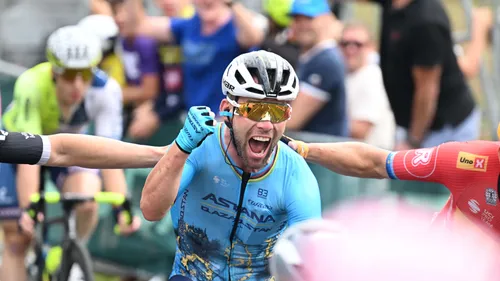
Cavendish broke the record for stage wins in 2024
A true legend
The word ‘legend’ gets thrown around regular in sport, but
Cavendish is one that truly deserves that title. Merckx’s mark of 34 had loomed
since 1975, nearly half a century, and many thought it untouchable.
Cavendish not only reached it, he surpassed it, and he did
so as a pure sprinter. In contrast to Merckx (a five-time Tour champion who won
stages in time trials, mountains, and sprints), every single one of Cavendish’s
35 wins came in bunch sprint finishes. He dominated the Tour’s flat stages like
no rider before him, using his uncanny positional sense, explosive
acceleration, and sheer will to beat generation after generation of fast men.
Read also
Mark Cavendish’s story is one of talent, tenacity, and an
undying passion for the Tour de France. He has worn the yellow jersey (if only
briefly), claimed the green jersey twice, and won 165 races in his career, but
nothing tops the moment he became the Tour’s winningest stage rider.
In an era when sprinters come and go, Cavendish has been to
a whopping 15 Tours, and has been a threat in just about all of them. His
record may well stand for generations, a target perhaps never to be reached by
another.
As we count down the final days to the 2025 Tour,
Cavendish’s record-breaking triumph reminds us that even in a race rich with
history, new legends can still be written. At the rate Tadej Pogacar is going,
we may have a new record in the not so distant future. But, that won’t matter,
as Cavendish is already the greatest sprinter the Tour has ever seen.
claps 2visitors 2
Just in
Popular news
Latest comments
- Fed up hearing "their" voicesslappers6618-02-2026
- When you join Ineos , learning , time , no pressure go out of the windowabstractengineer18-02-2026
- The UCI screws up againcaptmike18-02-2026
- No matter what people say - I'll watch it. And I bet all the complainers will do it too....averagecyclist18-02-2026
- Exactly what I'm thinking about it. Moreover Van Glis had a lot of time to rethink his situation but decided to stay where he was.averagecyclist18-02-2026
- Soler must be pissed at that
 leedorney18-02-2026
leedorney18-02-2026 - Completly agree, Jan was in front of van gils, following Pidcock wheel, it was Van gils who tried to force his way through Jan and the barriers. Are they blaming Jan because he belongs to the richest team that win a lot?
 maria2024202418-02-2026
maria2024202418-02-2026 - Clickbait title, not reality-based. Yawn.itsent18-02-2026
- lame, but probably correctantipodeanpedalfan18-02-2026
- Van Gils rode like wanted to get crashed or way too over confident that he was going to overtake Jan before getting pinched. It was obvious were Jan was going/had to go and MVG had the whole road to give an inch so he would have a chance to overtake on the rightjad2918-02-2026
Loading
Write a comment

